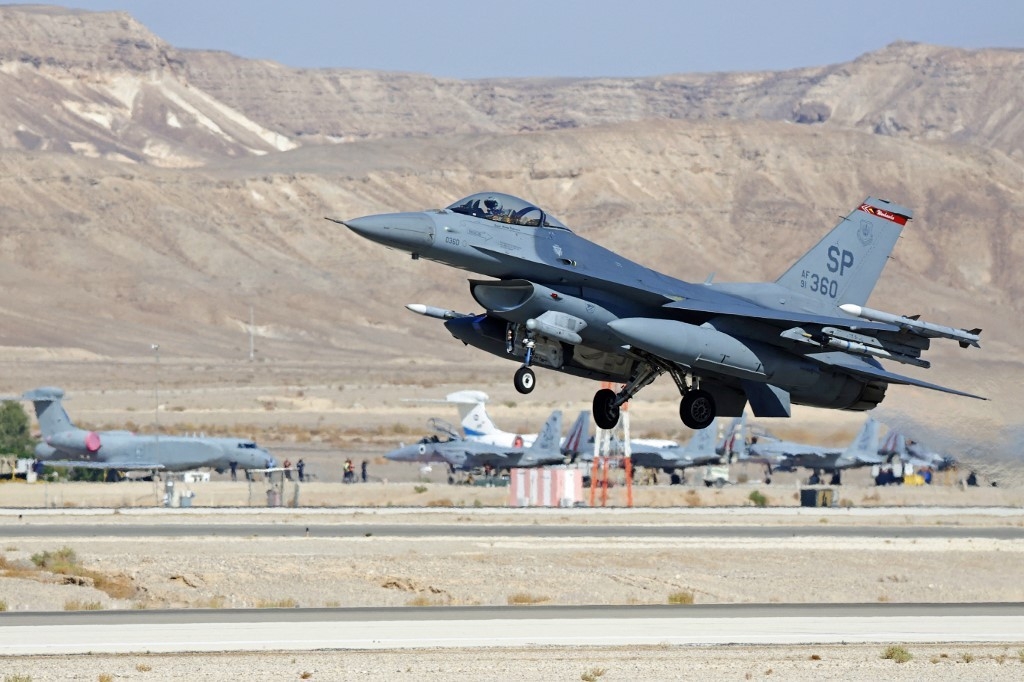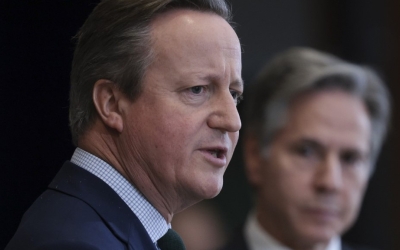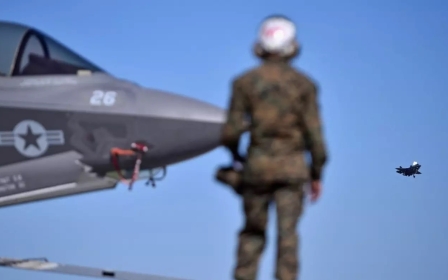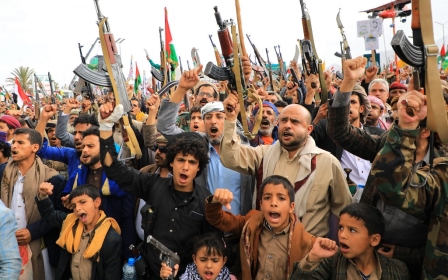Israeli bombing of British doctors in Gaza likely used UK and US arms, investigators find

A UN investigation found that US and UK-manufactured weapons or parts were likely used to bomb British doctors working for British and American organisations in Gaza in January, the organisations involved have highlighted.
Medical Aid for Palestinians (MAP) and the International Rescue Committee (IRC) also said this week that Israeli officials have offered six different explanations about why the residential compound housing their staff was hit.
The compound, which was not close to any other buildings, was struck around 6am on 18 January by an F-16 jet which "most likely'" fired a 1,000-pound "smart bomb", the UN investigation found.
A month earlier, the Israeli military had given the British defence attache assurances that the site, which had been designated a safe zone and was located in the southern Gaza town of Al-Mawasi, had been marked as a protected, humanitarian area.
The strike left several staff members and a bodyguard with non-life-threatening injuries, severely damaged the compound and was said to have forced the organisations to stop taking foreign doctors into Gaza as the healthcare system collapsed.
New MEE newsletter: Jerusalem Dispatch
Sign up to get the latest insights and analysis on Israel-Palestine, alongside Turkey Unpacked and other MEE newsletters
The organisations say Israeli government and military explanations of what happened range from denying involvement, accepting responsibility, and asserting that the incident “was a mistake caused by a defective tail fin on the missile that was fired”.
“It is clear from this experience that the Israeli military and government are either unable or unwilling to properly investigate this serious incident,” the organisations said.
They have called on Israel’s allies to agree to a “full, independent and timebound” investigation into the incident and all other reported attacks on "deconflicted" facilities and staff.
The organisations also want “concrete assurances” that attacks against aid and health workers will not occur in the future.
“As current suppliers of arms and munitions to Israel, governments such as the UK and the US have a particular responsibility to hold Israel accountable for this and other attacks on aid workers and civilians,” the organisations wrote.
'Come clean'
The US has sold MK83s, the bomb identified by UN investigators as likely used in the attack, to Israel. At least up until December, Washington was also reportedly rushing transfers of a kit that turns “free fall” bombs into precision-guided missiles, which were also identified by the investgation.
F-16 jets are manufactured in the US and include parts supplied by the UK. A database compiled by the Campaign Against the Arms Trade (CAAT) shows that in the first six months of 2023, four licenses were granted to UK companies worth at least £186,000 ($238,000) to export components for combat aircraft to Israel, which could potentially include F-16 components.
The State Department in Washington and Department for Business and Trade in the UK have previously declined to tell Middle East Eye whether the attack on the compound had affected arms exports to Israel.
MP Brendan O'Hara, the Scottish National Party's spokesperson on foreign affairs, said on Thursday he was "extremely concerned" such an attack could happen again, saying it was "almost inevitable" given the "sense of impunity" with which Israel is acting.
"The targeting of protected places such as hospitals, medical facilities or humanitarian compounds constitutes a war crime, and this indiscriminate bombing of a designated safe zone should be investigated as such," O'Hara told MEE.
"If, as we suspect, those bombs, or the planes which dropped them, were made in the UK, then I fear that that makes the UK complicit."
He called on the UK government "to come clean on what exactly happened in this incident".
"We desperately need transparency so we can see what impact the UK’s continued arms sales to Israel is having on the slaughter of innocent civilians," O'Hara said.
MP Colum Eastwood, leader of the Social Democratic and Labour party, said he and others had been raising serious concerns for months about the UK's arms export licensing regime given the ongoing bombardment of Gaza.
"In this case and in others, the response from the British government has been woefully deficient," Eastwood told MEE.
He called for the Foreign Office and Department for Business and Trade to immediately end the licensing the sale of arms and component exports "where there is a risk they could be used to continue the oppression of people and communities in Gaza".
"Unless and until that happen, there is every risk that doctors, aid workers and civilians will be killed using these components. No one should be prepared to stand over that," he said.
Middle East Eye delivers independent and unrivalled coverage and analysis of the Middle East, North Africa and beyond. To learn more about republishing this content and the associated fees, please fill out this form. More about MEE can be found here.





